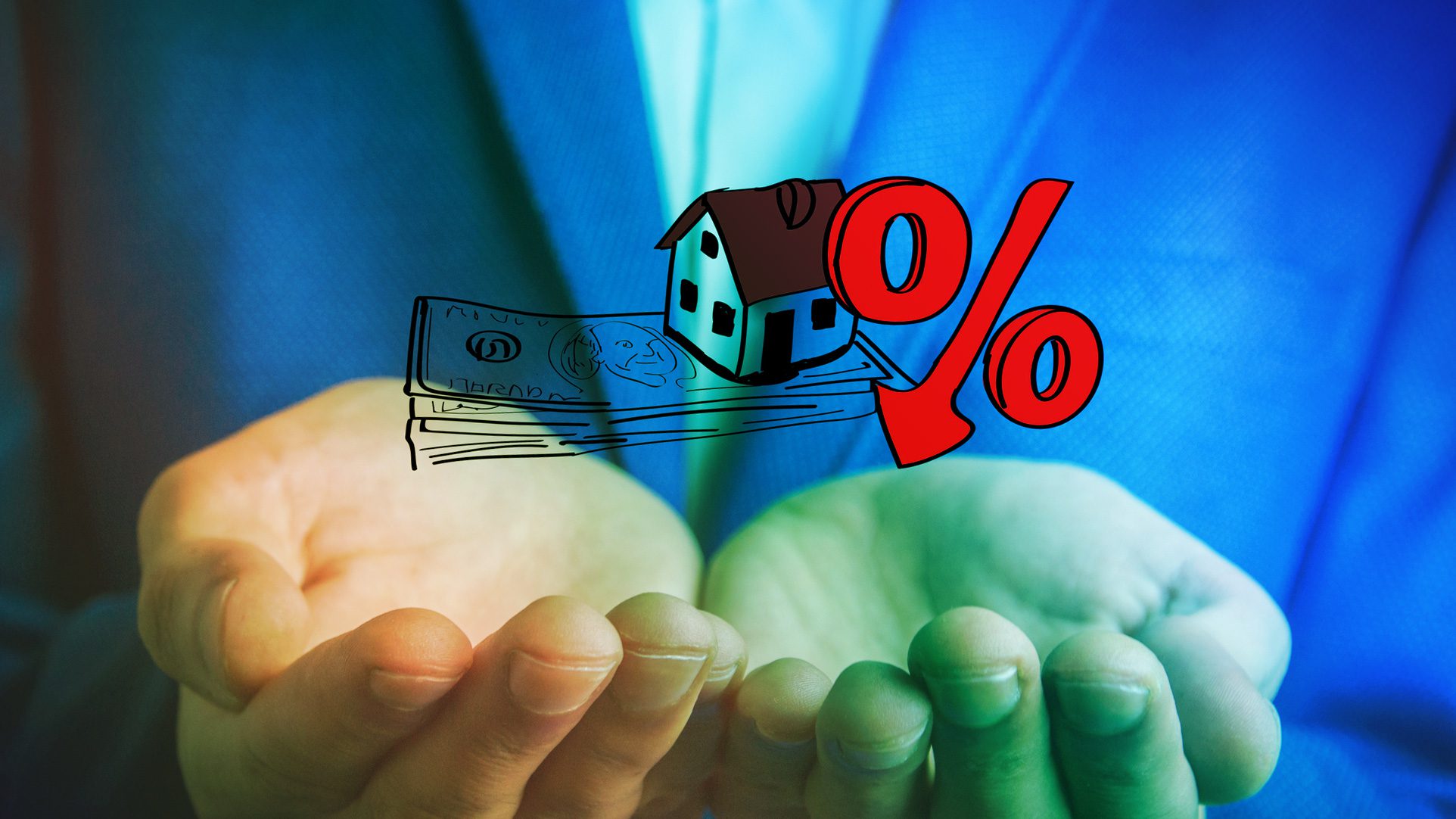
sasun1990/iStock
One of the few bright spots in the coronavirus/stock market panic is that mortgage interest rates have fallen to their lowest levels in nearly 50 years, lower than during the Great Recession. That’s quite a windfall for home buyers, as well as for homeowners hoping to cut down on their monthly loan payments. And yet, some are wondering whether rates could go even lower. After all, who wants to leave money on the table?
Real estate experts are divided on whether rates will continue to decline. Some believe they’ll dip into the low-to-middle 2% range. Others say rates have already bottomed out. And some believe we’re in such uncertain times—with a potential recession looming—that there’s no telling in which direction rates will head next.
“We’re in uncharted territory, so you can’t look to history as a guide to what could happen. It’s hard to predict how mortgage rates will react,” says realtor.com’s chief economist, Danielle Hale. “I don’t think they’ll go up until it’s pretty clear we’re out of the woods. They might move sideways, or they might go down more slowly.”
The average 30-year fixed-rate loan was just 3.29% as of Thursday, according to Freddie Mac. This is the lowest it’s been since Freddie Mac began tracking mortgage interest rates in 1971.
How much can these lower mortgage rates save buyers and refi seekers?
Even a small change can add up quickly. Folks can save about $159 a month this year compared with last on a 30-year fixed-rate loan for a $300,000 home on which they put 20% down. That’s because this time last year, rates were at 4.45%. That’s more than a full percentage point higher than this year. And this year’s rate can save buyers or homeowners refinancing more than $57,000 over the life of their 30-year mortgage.
If the Federal Reserve cuts interest rates again, to stave off an economic downturn, rates could go down again.
Hale estimates we’re about a third of a percentage point away from hitting mortgage rates in the 2% range.
“For context, in the last six weeks, mortgage rates have come down by that same amount,” she says. But, “I don’t think they’ll keep moving down quite as quickly.”
Mortgage applications shot up 54.4% from the previous week and 192.4% compared with a year earlier in the week ending March 6, according to the most recent data from the Mortgage Bankers Association. Refinances made up the bulk of the applications, at 76.5%, up from 66.2% in the prior week and 479.2% from a year ago.
Competition is stiff to secure mortgages, particularly refinances
To handle the rush of buyers and homeowners seeking money-saving refinances, some lenders are raising rates.
“The obstacle now is, lenders are so backlogged, many of them are not putting out competitive rates because they’re not looking to acquire additional applications,” says Greg McBride, chief financial analyst at Bankrate.com, a personal finance website. “The mortgage industry was not staffed for this type of influx of applications.
“The real challenge is, can you get your rate locked and the loan closed before that lock expires, given that backlog?” asks McBride.
Mortgage lender Don Frommeyer has seen rates tick up slightly to slow down the influx of folks seeking to refinance. His company has hired four new underwriters to assess loans just in the past week, nearly doubling the company’s number of underwriters.
He believes rates will continue to fall into the low-to-middle 2% range, potentially by November during the run-up to the presidential election. President Donald Trump will likely want to keep the Federal Reserve’s short-term interest rates low to stimulate the economy—and mortgage rates are influenced by what happens to federal rates.
(Mortgage rates are related to the 10-year U.S. Treasury bond market. When the stock market is volatile, as it has been recently, investors often sink their money into bonds. And when bonds rise, mortgage rates fall.)
Should folks hold out for even lower mortgage rates?
Folks shouldn’t wait for rates to fall further to lock in a mortgage rate or refinance, warns Sylvia Gutierrez, a mortgage banker at Impac Mortgage based in Miami. She believes rates will rise again once the coronavirus panic is over.
“It’s not worth the risk to wait to see if they’re going to go any lower. Jump,” says Gutierrez, the author of “Mortgage Matters: Demystifying the Loan Approval Maze.”
She adds, “I’ve been in the mortgage business since 1993 and I’ve never seen them this low.”
Gutierrez practices what she preaches. She recently refinanced her mortgage, cutting 12 years off the term of her loan without raising her monthly payments. Her rate was 3.875% on a 30-year loan when she bought her home in December 2018. She refinanced into a 15-year loan with a 2.5% rate.
But she advises folks to act quickly, as many lenders are overwhelmed by the surge in business.
In addition, keep in mind that rising home prices could offset a little of the mortgage savings for buyers. Prices are already rising at a faster clip. In December, annual list prices were up 3%, according to realtor.com data. They increased 3.4% in January and 3.9% in February.
Still, there’s no question the lower mortgage rates are a boon to anyone planning to purchase or refinance a home.
“Whether you get a mortgage that starts with a 2 or starts with a 3, 2020 will be a good year for home buyers,” says Bankrate.com’s McBride.
The post Mortgage Rates Are at Nearly 50-Year Lows. How Much More Could They Fall? appeared first on Real Estate News & Insights | realtor.com®.
source https://www.realtor.com/news/trends/mortgage-rates-are-at-nearly-50-year-lows-how-much-more-could-they-fall/
No comments:
Post a Comment